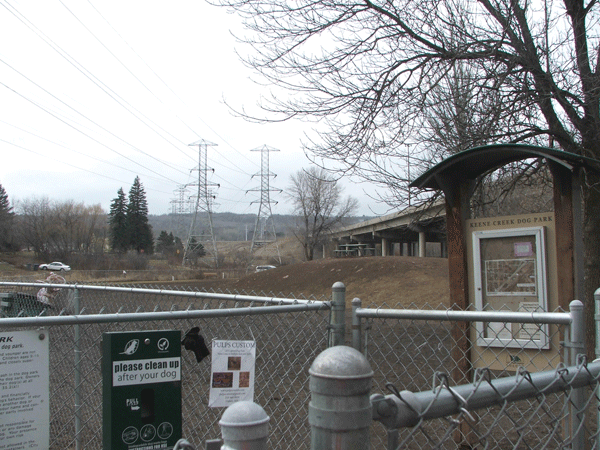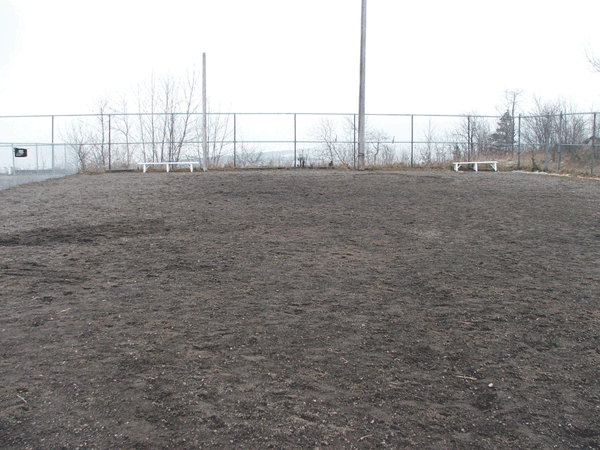News & Articles
Browse all content by date.

Over the last decade or so, the city has greatly increased its focus on trails—building them, mainly, but also restoring and maintaining them—trails for bikers, hikers, horses, skiers and others. During approximately the same period, the city has also seen a boom in another amenity: dog parks. Ten years ago, Duluth had no dog parks; today, the city has two completed dog parks, two dog parks under construction, and two dog parks on paper. Rumors of more, yet-unplanned dog parks swirl in the air.
Trails have consumed a healthy wedge of the city’s time and resources; dog parks have consumed considerably less. The city has donated labor and materials to dog parks (planting trees, covering muddy trails with wood chips), as well as the occasional small grant (in 2013, the Friends of Keene Creek Dog Park got $5,000 to install park benches), but the momentum and growing relevance of dog parks is largely due to the efforts of volunteers.
Recently, however, at the Parks Commission meeting of March 9, 2016, director of public administration Jim Filby Williams announced a change in how the city viewed dog parks: “I think the time is long past when we need to recognize that dog parks [and] the people who help to build and care for and manage them are a central, highly valued part of our park and recreation system, and that going forward, capital improvements designed to support dog park users will be made on precisely the same basis that we make decisions about city funding for any activity—that being the number of users, the public benefits they enjoy in association with that use, et cetera.”
“This will not result in a flood of money going towards dog park construction,” he cautioned, “because every one of our park and trail projects requires a lot of heavy lifting from our nonprofit partners….But no longer will dog parks be arbitrarily ineligible for support. This was never an entirely formal or explicit policy, and so I’m summarily overturning it. I thought it important to do this in a public way.”
It was like watching the red-headed stepchild be welcomed into the family. A couple of parks commissioners teared up (or maybe that was just me). Filby Williams invited Denette Lynch up to the microphone to say a few words. Lynch is the face of the dog park movement in Duluth. She hit the high points in her comments. “The people who use the dog parks are all ages from 9 to 90, all income levels, all physical abilities and mental abilities and a broad spectrum of backgrounds….Unlike most park and trail amenities that have their season, either summer or winter, dog parks are used all the time. The day after a blizzard, the park is beaten down with the snow….They’re low-cost to build and they require minimal maintenance. We have a really active Facebook group of 1,500 members and growing.”
Denette and her husband Bill first got involved with dog parks in 2013, when they applied for a grant to build a small-dog enclosure at Keene Creek. “We felt it was very important to have a separate area for small dogs,” she told me on March 11, when I interviewed them. “When you’ve got a group of dogs running in one direction and a group of dogs running in another and they collide, a little dog can get hurt in something like that, so it’s important to provide that for a small dog owner.”
At that time, Keene was the city’s only dog park. Encouraged by their success with the grant, the Lynches began to organize support for a second park—fundraising, lobbying, hunting up building materials. In November of 2014, Observation Dog Park opened in a previously overgrown and decrepit corner of Observation Park. And in August of 2015, thanks to the Lynches’ continued efforts, a third dog park was established at the far eastern end of town, near the soccer fields on Jean Duluth Road. (A fourth dog park is being built in Gary, headed by the Gary Community Club.)
“The idea is to have them spread throughout the city, so people don’t have to drive as far,” Denette said. “I’d love to get one up in the Heights somewhere, or in Hermantown, to service that area more. So the idea is not necessarily to have one great big one…but to have more of them…so more people could use them conveniently, and theoretically the dogs would be spread out so you wouldn’t have too many dogs in one dog park at a time. Because when you get too many, it does get to be a little crazy.”
The Lynches live about a mile from Keene Creek, where they bring their own dog, Monty, a 13- year-old dog whom they described to me as looking like an oversized Jack Russell terrier with a small head. “His head is so small that his neck is bigger than his head, so when we’re walking with him we usually use a harness, because otherwise the collar will pull right over his ears,” said Bill.
At the dog park, Denette said, Monty doesn’t romp with other dogs. “He pees on everything. He does a lot of sniffing. He chews wood chips [and] gets pets from the humans. That’s his normal dog park experience.”
In addition to their fundraising and vigilance on behalf of dog parks (I can attest that Denette and Bill Lynch are two of the most diligent attendees of public meetings in the city), the Lynches also support dog parks in less glamorous ways, by trimming brush and doing “extra poop pickup” and other menial chores. I suggested that now that the city had mainstreamed dog parks into its thinking, maybe the city would do poop pickup. Denette did not like that idea.

“I don’t think they should,” she said. “I think that needs to be user responsibility….I would never ask them to do that….Individual dog owners need to pick up after our own dogs and the other dogs….You know, hopefully that will happen.”
“It’s their dog park, so they should take some responsibility,” agreed Bill. He suggested that a lot of the stray poop was there because sometimes people were too busy talking to notice their dog pooping, and nobody else said anything about it. “It might be related to this Minnesota Nice, where you don’t want to antagonize somebody by saying, ‘Oh, your dog just pooped,’ which—if you’re in New York City and your dog poops and you don’t pick it up within a minute, somebody’ll say, ‘Hey! That’s your dog’s poop over there.’”
“And they’re not being mean about it,” said Denette.
“They just let you know,” said Bill. “It’s just that people have to be more aware of what’s going on and they have to mention it to other people. Like I say, if you’re [conversing] with somebody, you don’t see what’s going on behind your back.”
Some work was done at the new eastern dog park last fall, and the Lynches hope that work will be completed this spring. The new park, located near Riley and Jean Duluth Roads, is as yet unnamed. Last fall, members of the Duluth Dog Parks Facebook group voted on various suggestions. Denette Lynch’s name received a lot of votes, but some people were concerned that naming a dog park “Lynch Field” would have bad connotations in a town that infamously lynched three people in 1920. A second popular choice was “Wiggley Field.” In the end, the suggestion “Lynch’s Wiggley Field” was sent to the city’s Naming Committee, which is where it now sits. As the Naming Committee rarely meets (in 2015, they met once), it may be a while before any action is taken on the name.
Looking ahead, dog parks have been included in the mini-master plans for Piedmont Heights and Quarry Park, which makes the Lynches happy. Denette also expressed a general wish for trails in the city where dogs could run off-leash—an idea that the city council approved in 2005, but which has languished ever since—but said that dog parks kept her busy enough, so she wouldn’t be pushing for dog trails any time soon.
When I asked if they had advice for other people who might want to get something done in the city, Denette said, “Duluth is a fairly big city, but it’s not so big that…you can’t make an impact. But it requires persistence and it requires being willing to put in the time. If you just say, ‘Oh, I think it would be great to have this [idea happen],’ and you just tell a councilor or the mayor, nothing’s going to happen. But if you stick with it and work with it and get some more people, you can make it happen. But it requires having an idea, making a plan, talking to councilors and the mayor…and really sticking with it.…We don’t always win, we don’t always get what we want….but we’ve had some really great wins, which is really cool.”
Bill’s advice was slightly more hard-nosed. “You gotta get support from the public…You get the public’s support and then you get some signatures on a petition and show them that there are citizens that are interested in it. You look at the city elections here…when you get four or five hundred signatures on a petition, they take notice, because two or three votes can make a difference.”
More information about Duluth's dog parks may be found at duluthdogparks.com.
| Tweet |

